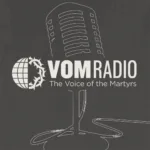Focus on all new content.
-

-

-

-

-
Angel Original Series Feature True Stories of Modern-Day Miracles and Original Music from Today’s Leading Artists
Provo, UT—September 29, 2025—Updated September 30, 2025
Angel (NYSE: ANGX), the film & TV platform curated by more than 1.5 million members of the Angel Guild, is proud to announce MIRACLE, an 8-part original series hosted by world-renowned adventurer Bear Grylls. Created by Kimberly Clarke, Joanne Moody, Ben Kasica (Creator of Homestead), and Joshua Silverberg, the series is available today, exclusively on Angel.com and in the Angel App.
“Following my own personal miracle healing, I set out to create a series that brings these powerful stories into the mainstream,” said Kimberly Clarke, Creator of MIRACLE. “By combining firsthand accounts with scientific and medical documentation, our goal is to present modern miracles in a way that is both credible and deeply inspiring.”
View the trailer HERE
Each episode of MIRACLE explores a true, life-altering moment of divine intervention—from impossible medical recoveries to unexplained resurrections—captured through cinematic storytelling and raw personal testimony. Every story is accompanied by a new original song and music video from top Christian artists, including Phil Wickham, Natalie Grant, Rita Springer, Terrian, and more, combining for a total social reach of over 6 million followers.
“MIRACLE is a series that dares to ask, what if divine healing wasn’t a myth, but a modern phenomenon?,” continues Joanne Moody, Co-Creator and subject of Episode 2. “It’s a riveting, cinematic journey where the boundaries of science and faith blur, revealing extraordinary stories of hope, healing, and the unexplained. Get ready for a show that will challenge everything you believe about medicine, miracles, and the human spirit.”
Beloved survivalist and global TV personality Bear Grylls has joined the series to champion these powerful accounts of science, healing, and hope.
“For those who wonder if miracles still happen today—watch this. These stories are humbling, inspiring, and deeply moving. I can’t wait for the world to experience them,” said Grylls.

Ben Kasica, Co-Creator of MIRACLE, added:“Bear is the perfect host because his life embodies courage, faith, and perseverance against all odds—qualities at the very core of these stories. His voice brings unmatched authenticity and weight, making each miracle feel more vivid, powerful, and unforgettable.”
Co-Creator and Music Supervisor Joshua Silverberg shares, “Working on this series is deeply personal for me. In 2021, after a near-death experience, doctors called my wife to tell her I wouldn’t make it. I was given only a one percent chance to live, yet I was miraculously and undeniably healed through prayer and divine intervention. To now tell stories this personal—the very reason I’m still breathing—feels not just fitting, but like a true calling.”
MIRACLE – EPISODE GUIDE:
September 30 – Episode 1: Dr. Josh Brown, “Terminal Logic” A brilliant neuroscientist confronts a terrifying diagnosis that shakes his scientific worldview and opens him to a journey of faith and healing.
Music: Terrian – “Testimony”October 6 – Episode 2: James Drain, “From Darkness, To Light” Once lost in trauma and despair, James discovers a flicker of something beyond the pain—leading to an unexplainable turning point.
Music: Phil Wickham – “The Day I Met You”October 13 – Episode 3: Joanne Moody, “Beyond All Limits” After surviving years of unrelenting pain and near-death experiences, Joanne must make a daring choice that invites healing and hope.
Music: Rita Springer – “Proof”October 20 – Episode 4: Adrian Caraballo, “The Boy Who Believed” A young boy’s fight for life inspires a global movement and challenges what science believed was possible.
Music: Natalie Grant – “Miracles”October 27 – Episode 5: Chris Gunderson, “Fed by Fire” After a life of medical struggle, Chris’s quiet strength becomes a testimony to the power of prayer and perseverance.
Music: Andrew Ripp – “Mercy Room”November 3 – Episode 6: Micah Nichols, “Mercy In Motion” Struggling with a mysterious illness, Micah receives a life-changing phone call that sends waves of healing far beyond his own story.
Music: Sara Reeves + Evan Ford – “Signs”November 10 – Episode 7: Dane & Lauren Shambrook, “Life; Unexpectedly” Told they’d never have children, this couple dares to believe—and finds joy born out of heartbreak.
Music: Joe L Barnes – “Hem of the Healer”November 17 – Episode 8: Jeff Markin & Dr. Chauncey Crandall, “Hope & a Heartbeat” Declared dead for 40 minutes, Jeff’s story should have ended—until a quiet voice prompted one final act that changed everything.
Music: Ryan Ellis + Eris Ford – “Beautiful Things”Kasica continues, “MIRACLE is more than a series — it’s a powerful collection of stories that speak to the resilience of the human spirit and the hope that carries us through life’s most impossible challenges. Our goal was to create something cinematic and deeply moving, a series that inspires audiences to reflect, believe, and be uplifted.”
MIRACLE will stream exclusively on Angel.com and the Angel App.
For more information, visit angel.com/miracle.

-

-

-

-

-

-

-

-

-

-

-

-

-
Nearly four decades after being kicked off his team, Mike Flynt returns to his alma mater to take the hit that changed everything. Bruised, doubted, and nearly broken, he fights for one last shot at the ending he still believes is possible.

-





















